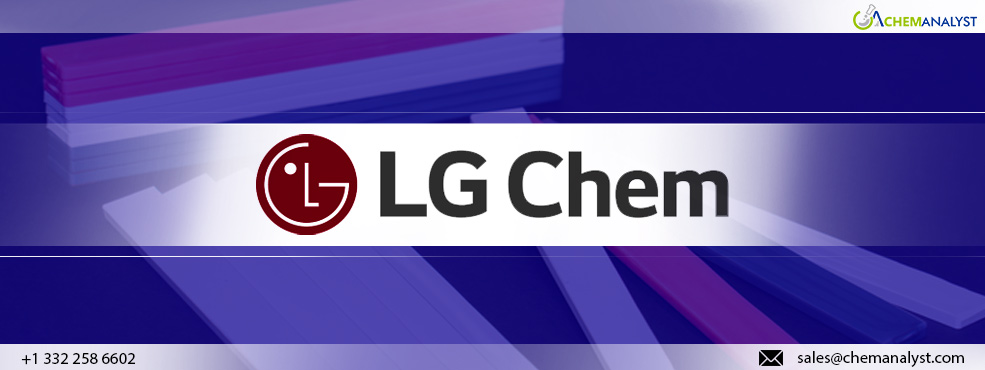Welcome To ChemAnalyst

LG Chem has developed an eco-friendly, flame-retardant material that resists burning. LG Chem’s PFAS-free flame-retardant PC/ABS material, made from recycled plastics, received a V-0 rating in the standard UL 94 flame-retardant test for UL certification in the United States. PC/ABS is a plastic blend combining Polycarbonate (PC) and Acrylonitrile-Butadiene-Styrene (ABS), offering significantly enhanced heat and abrasion resistance. This innovation underscores LG Chem's commitment to sustainable materials, meeting stringent safety standards while contributing to environmental protection through the use of recycled content.
The V-0 rating signifies the highest level of flame-retardant performance in the industry, requiring the material to self-extinguish within 10 seconds when a flame is applied vertically. LG Chem is pioneering in this field, becoming the first company to achieve V-0 or higher flame-retardant certification for a PFAS-free PC/ABS material. This breakthrough highlights LG Chem's leadership in developing high-performance, eco-friendly materials that meet stringent safety standards without relying on harmful chemicals, furthering its commitment to sustainability and innovation.
PFAS (perfluoroalkyl substances) are widely utilized for their exceptional heat resistance and ability to repel water and oil, making them common in products like cookware, clothing, and cosmetics. However, their non-biodegradable nature and potential to harm the environment have raised significant concerns. As a result, there is an increasing push, especially in Europe and the United States, for the development and adoption of PFAS-free materials that offer similar benefits without the associated environmental risks.
Using a proprietary flame-retardant process, LG Chem has improved the heat resistance of its material without relying on PFAS. Additionally, the integration of post-consumer recycled (PCR) plastics significantly lowers carbon emissions. With over 50% of the material composed of recycled plastics, LG Chem has achieved a 46% reduction in carbon emissions compared to traditional PC/ABS materials.
The PFAS-free flame-retardant material is anticipated to find applications across various industries, including in electronic devices like laptops and tablets, as well as in equipment such as inverters and electric vehicle chargers that come into close contact with users and generate heat. Beyond PC/ABS, LG Chem has successfully developed and secured UL certification for a range of PFAS-free flame-retardant materials, including PC and PBT, demonstrating its leadership in advancing safer, eco-friendly solutions.
Steven Kim, Executive Vice President of LG Chem’s Engineering Materials Division, highlighted the growing global trend towards eco-friendly materials, such as PFAS-free flame-retardant plastics. He emphasized LG Chem's commitment to advancing research and development to create materials that not only meet stringent flame retardancy standards but also prioritize customer health and environmental sustainability. Kim underscored the company's dedication to leading the industry in producing safer, greener solutions that align with global environmental objectives and enhance overall product safety.
We use cookies to deliver the best possible experience on our website. To learn more, visit our Privacy Policy. By continuing to use this site or by closing this box, you consent to our use of cookies. More info.
